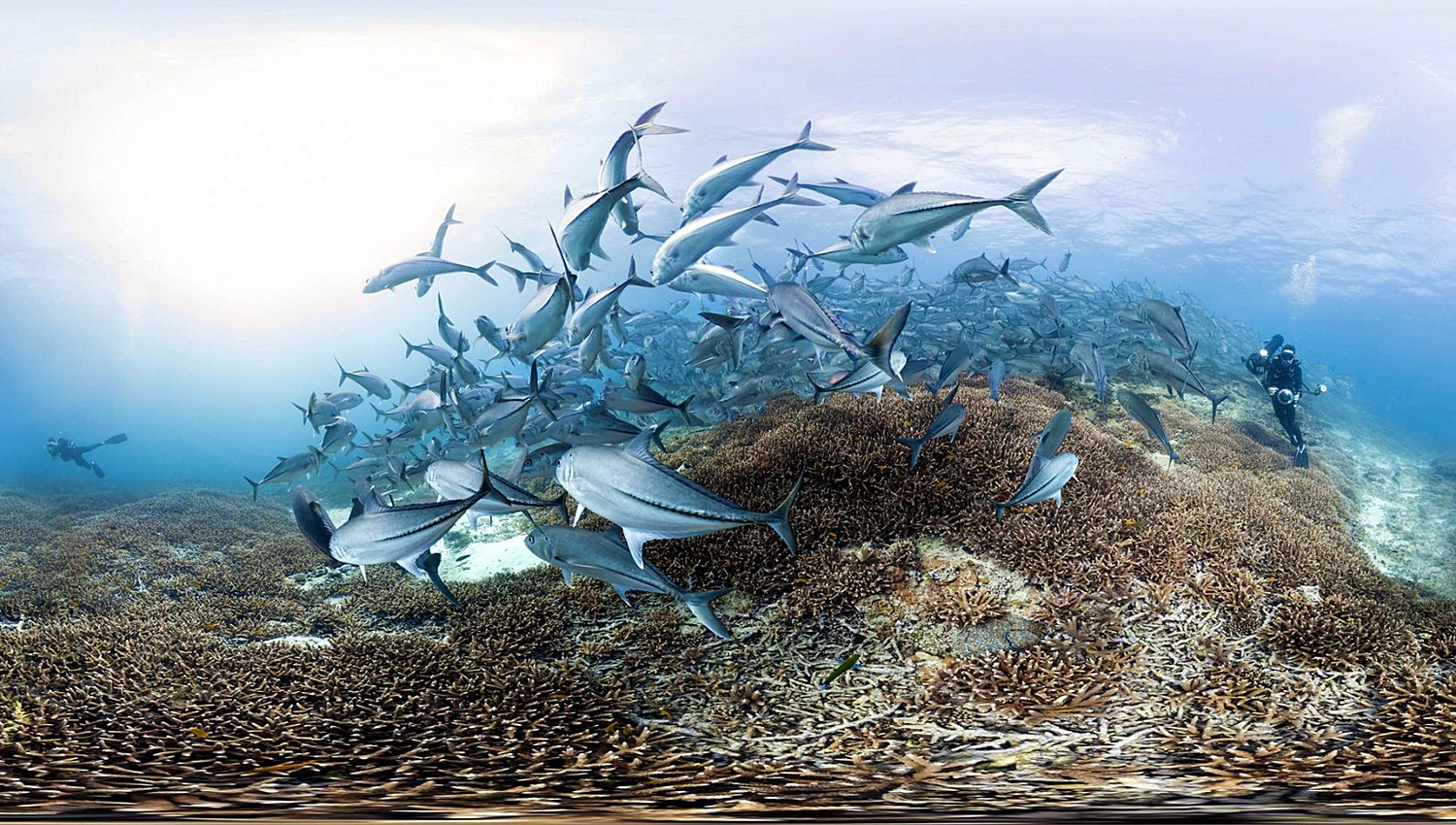
Chasing Coral
Dustin Chase
This documentary will sweep you off your feet with its brilliant images of underwater life, then bring you up short in informing you of the precariousness of ocean reefs and the dangers to us all in the event that a whole eco-system on which 500 million people rely for food and livelihood disappears (which could actually happen in our lifetime). When Director Jeff Orlowski (Chasing Ice), underwater photographer Richard Vevers, and the oceanic researchers witnessed the state of affairs, they were determined to make an educational video for the world.
Coral reefs make up one of the fundamental bases of our eco-system, in its uniqueness. It performs photosynthesis by day, and by night, reaches out with tiny tentacles to capture organisms, constituting a “food factory” that sustains the coral’s nutritional needs. But a major problem cropping up only recently (in the last 30 years) has been observed by marine biologists, and that is “whitening” of coral, which soon dies from starvation as its food producing capabilities are impaired. Moreover, they have determined the source of the problem and verified their findings with photographic proof.
In addition to the impressive imagery and scientific rigor, Chasing Coral’s scientists presenting the information are engaging, warm, human individuals who remind me of favorite teachers I’ve had in my university experience. One, Richard Vevers, seems to have gotten the whole project started when, as an adman in London he began to see the emptiness of his endeavors and wished to pursue something meaningful. Another, Zackery Rago, calling himself a coral nerd in his avid marine interest, in setting up coral aquaria in his home, and in idolizing the “father of coral reef science” Dr. John Veron (whom we also get to see), is an underwater engineer who helped design the underwater cameras and collected data. All the marine biologists and camera crews are a source of inspiration in their accounts and in cinematography by Andrew Ackerman and Jeff Orlowsky.
The marine biologists and camera crews are a source of inspiration in their accounts and in cinematography by Andrew Ackerman and Jeff Orlowsky.
The challenges of photographing the progression of the decline of coral reefs involved adapting cameras that could be left in place for months, withstanding both water and ocean pressure. We go through the agony of the researchers in the setbacks and their heroic efforts to compensate, including multiple dives throughout the day to film manually rather than having a camera in place for continual filming. The good news is that toward the conclusion of the film, they finally got their cameras to function well, which means we should be getting updated information at a later date.
Sites visited by the researchers include the Florida Keys, which has lost 80-90% of its coral; Discovery Bay in Jamaica, America Samoa (where in six months all coral became white as far as the eye could see); the Hawaiian Islands, Bermuda, and the Bahamas; and, finally, the Great Barrier Reef off of Australia. Here, they encountered additional phenomena, such as the “fluorescing” of the coral, its attempt to block out the sun.
Now comes the sobering news. In the last 30 years, the world has lost 50% of its corals. When 25% of all marine life relies on coral reefs, it’s easy to fathom the implications of such. In 2016, 29% of the Great Coral Reef animals died, and this is happening all over the world. Within 30 years, most of the world’s corals will have died. UNLESS we do something. It’s not too late, say the scientists.
Chasing Coral appears to have been a truly collaborative project, with the filmmakers and scientists working closely together in presenting the facts, the rigors and setbacks of filming underwater, and their emotional experiences in discovering the phenomena and the extent of the damage to coral around the world. They are convinced that climate change in the form of global warming is a fact. They emphasize how important the ocean is for life on this planet, and the danger of 93% of the heat trapped in the atmosphere going into the oceans.
Final Thought
You owe it to yourself—and the planet—to see this wake-up call in film.
